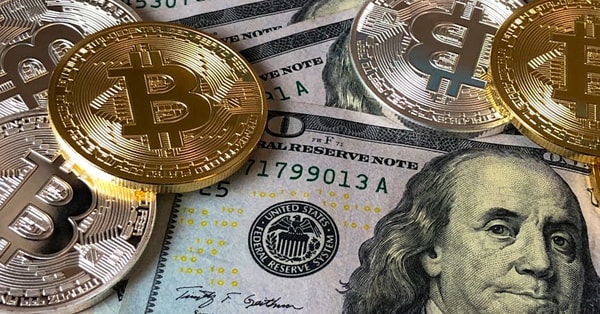WPP Shares Plunge as FTSE 100 Winning Streak Concludes
WPP shares drop to 1998 lows as FTSE 100 winning streak ends; ECB maintains 2% rates amid rising eurozone inflation.
The latest trading session has marked an end to the FTSE 100's winning streak, largely influenced by a steep decline in the shares of advertising giant WPP. The company’s stock reached its lowest point since 1998, following a substantial revision of its revenue forecasts for the year. The new Chief Executive Officer, Cindy Rose, previously with Microsoft, described the company’s recent performance as "unacceptable." In response, she has initiated a comprehensive review of WPP’s operations, aiming to rectify the troubling trends as the firm faces an escalating client exodus and stiff competition from rivals leveraging advanced AI and data analytics.
In related financial news, the European Central Bank (ECB) has opted to maintain its interest rates at 2% for the third consecutive meeting. This decision comes amid worries that a gradual economic recovery in the eurozone could lead to increased inflationary pressures. Despite the annual inflation rate rising to 2.2% across the 20-member euro area in September—up from 2% in August and 1.7% a year prior—the ECB’s governing council reported that its outlook on inflation remains "broadly unchanged." They noted that a strong labor market, solid private sector balance sheets, and previous interest rate cuts continue to be key pillars of economic resilience.

According to Eurostat, the broader European Union, consisting of 27 member states, saw its annual inflation rate increase to 2.6% in September, compared to 2.4% in August. The ECB remains vigilant, balancing the need for economic growth with the risks posed by inflation as they monitor the ongoing recovery.
In a significant development for the UK rail industry, Virgin Trains is poised to challenge Eurostar’s long-standing monopoly on cross-Channel travel. The Office of Rail and Road (ORR) has approved Virgin’s request to utilize the Temple Mills depot located in east London, crucial for the maintenance and storage of its trains. This move is expected to unlock an impressive £700 million in investments towards new services and create approximately 400 jobs. Access to Temple Mills is vital, as it is the only depot linked to High Speed 1, the line connecting London to the Channel Tunnel, enabling Virgin Trains to finally compete with Eurostar—an exclusive passenger service operating through the tunnel since its inception in 1994.
📖 Read more:
throughThe political landscape is also heating up as reports suggest that Rachel Reeves may propose an increase in the basic rate of income tax in the upcoming budget. If enacted, this would mark the first increase since Labour's Denis Healey made headlines for raising the rate 50 years ago. In April 1975, Healey introduced a radical budget that raised the basic rate by two percentage points to 35%, alongside hikes to other rates. Political correspondent Ian Aitken described Healey's announcement as akin to a stern Edwardian head waiter presenting Britain with the bill for a year of excessive wage indulgence.
Healey’s budget emerged in the midst of an economic crisis characterized by soaring inflation, which had reached nearly 20%, a climbing unemployment rate, and a depreciating pound. Like many global economies at that time, the UK was grappling with the fallout from a significant spike in oil prices. In a defense of his controversial measures, Healey remarked on the necessity of such actions to stabilize the economy.

As the stock markets respond to these significant corporate and economic developments, the future remains uncertain. WPP’s struggles highlight the challenges traditional businesses face in adapting to an evolving market landscape dominated by technological advancements. Meanwhile, the ECB's cautious stance on interest rates reflects a balancing act between fostering growth and curbing inflation. In the UK, potential tax increases signal a pivotal moment for fiscal policy that could resonate through the economy for years to come. Stakeholders across the board will be closely monitoring these developments as they unfold.
Tags:
Related Posts
Unlocking Startup Success with the Business Model Canvas
Feeling uncertain about your startup idea? Discover how the Business Model Canvas can help you validate your concept and boost your confidence.
Validate Your Startup Idea with the Business Model Canvas
Struggling to decide if your startup idea is worth pursuing? Discover how the Business Model Canvas can bring clarity and direction to your vision!
Start Your Consulting Business on a Shoestring Budget
Ready to turn your expertise into a consulting business without spending a dime? Discover practical tips to launch successfully and thrive!
Turning Your Startup Around: 10 Steps to a Successful Pivot
Feeling stuck with your startup? Discover my personal journey and 10 essential steps to pivot your business toward success and profitability.
Unlocking Startup Success with the Business Model Canvas
Wondering if your startup idea has legs? Discover how the Business Model Canvas can help you validate your concept and shape your entrepreneurial journey.
Launch Your Dream Project: 30 Days to Your No-Code MVP
Stuck on how to turn your idea into an MVP? Discover the step-by-step guide to building a no-code product in just 30 days!